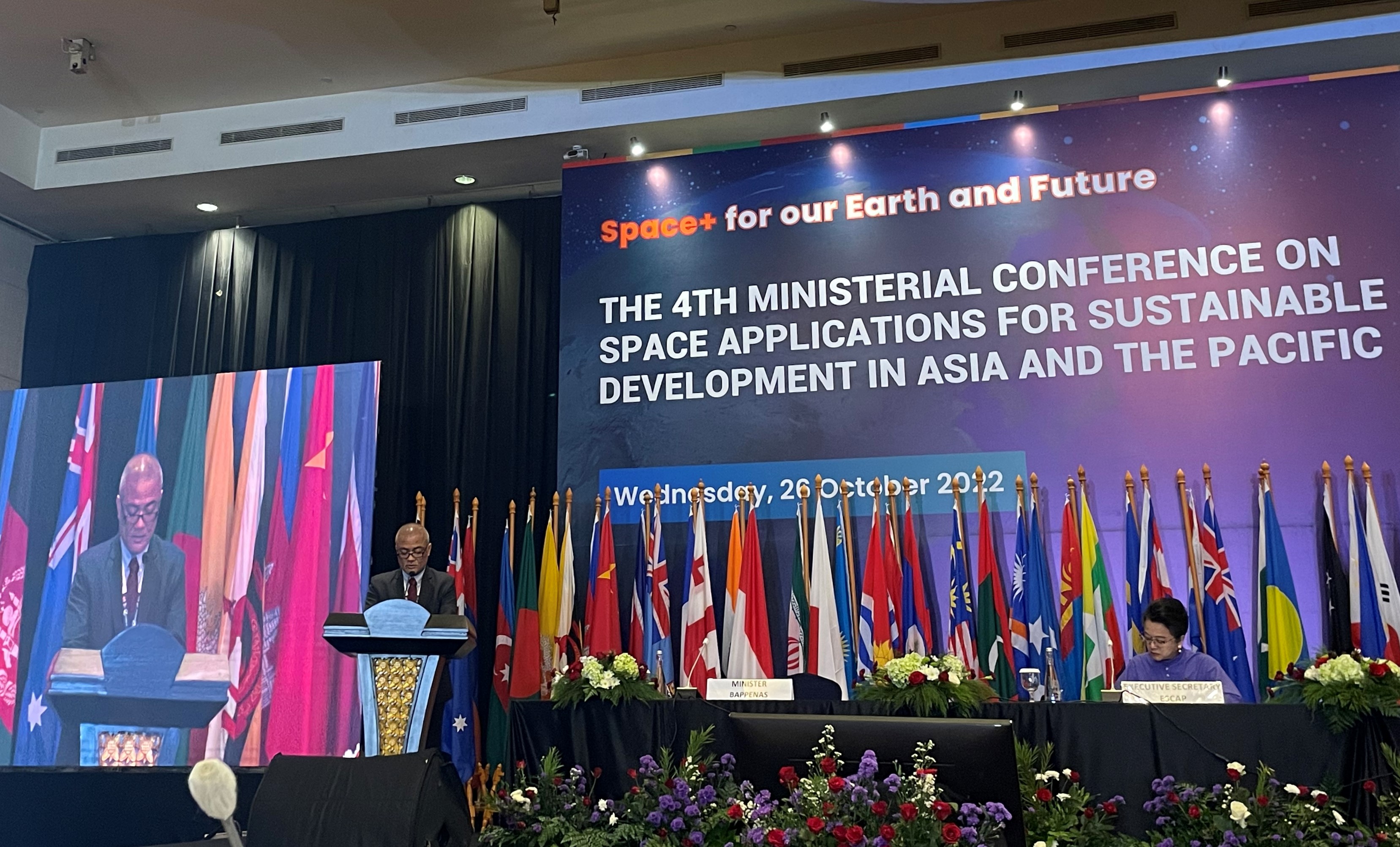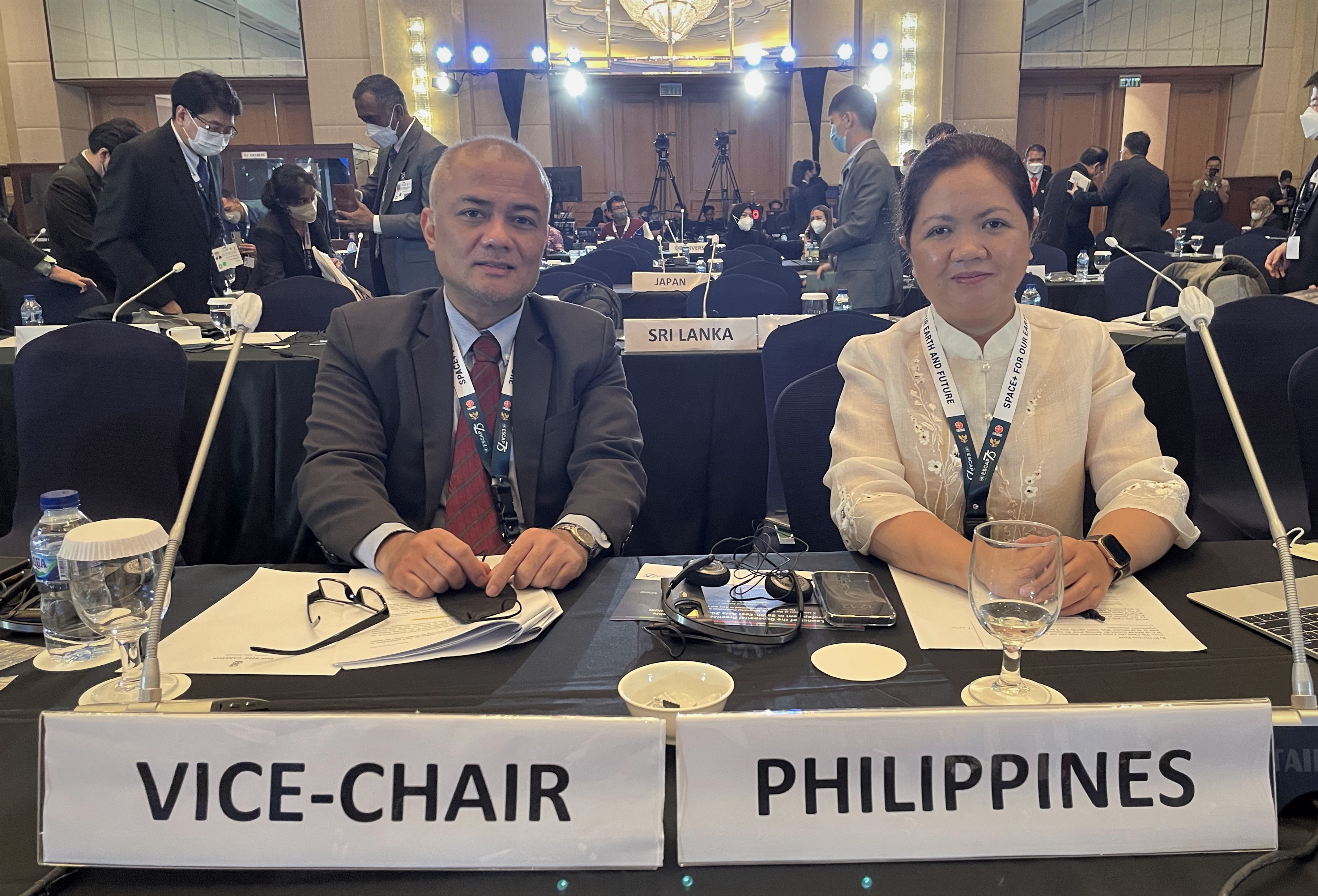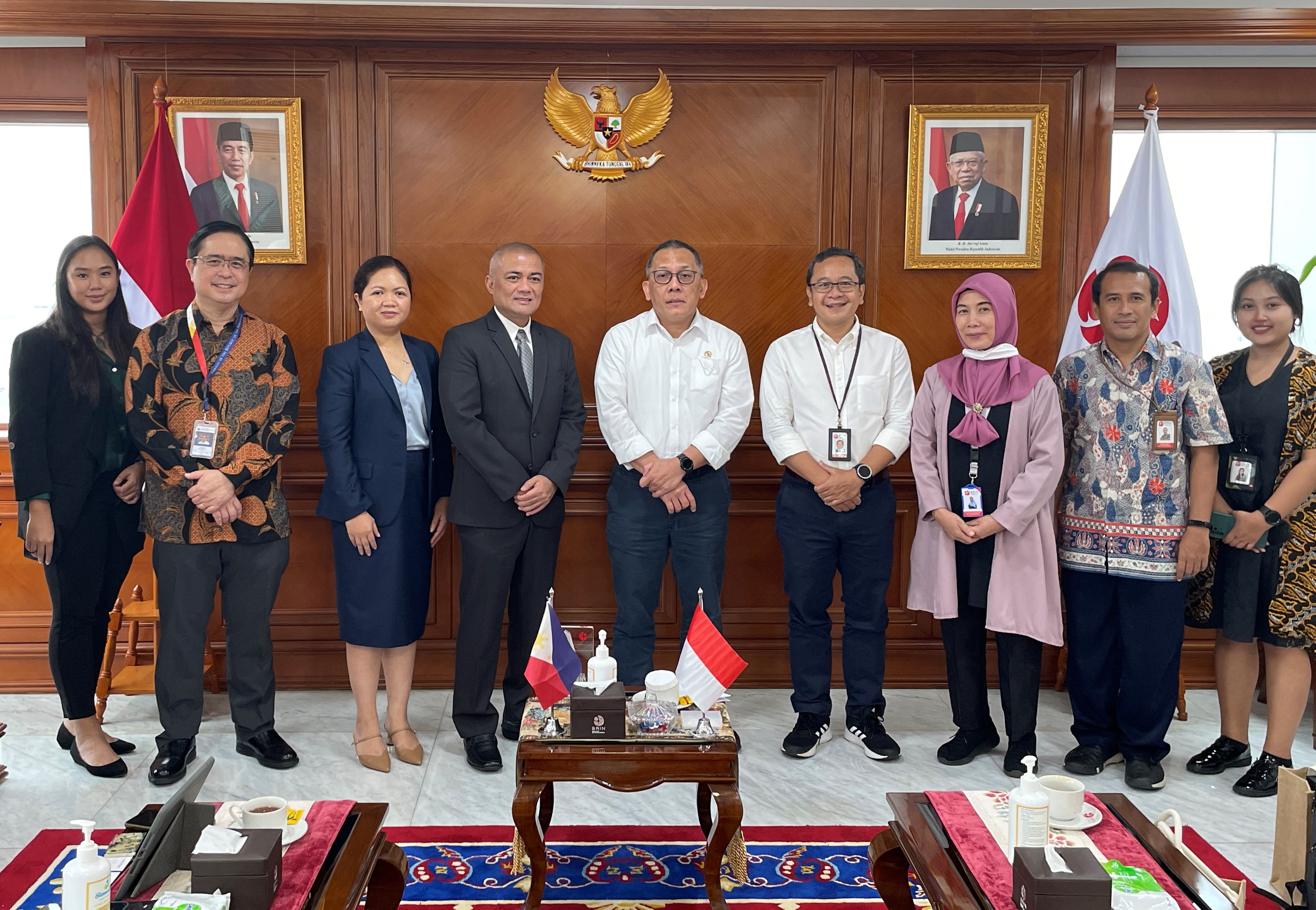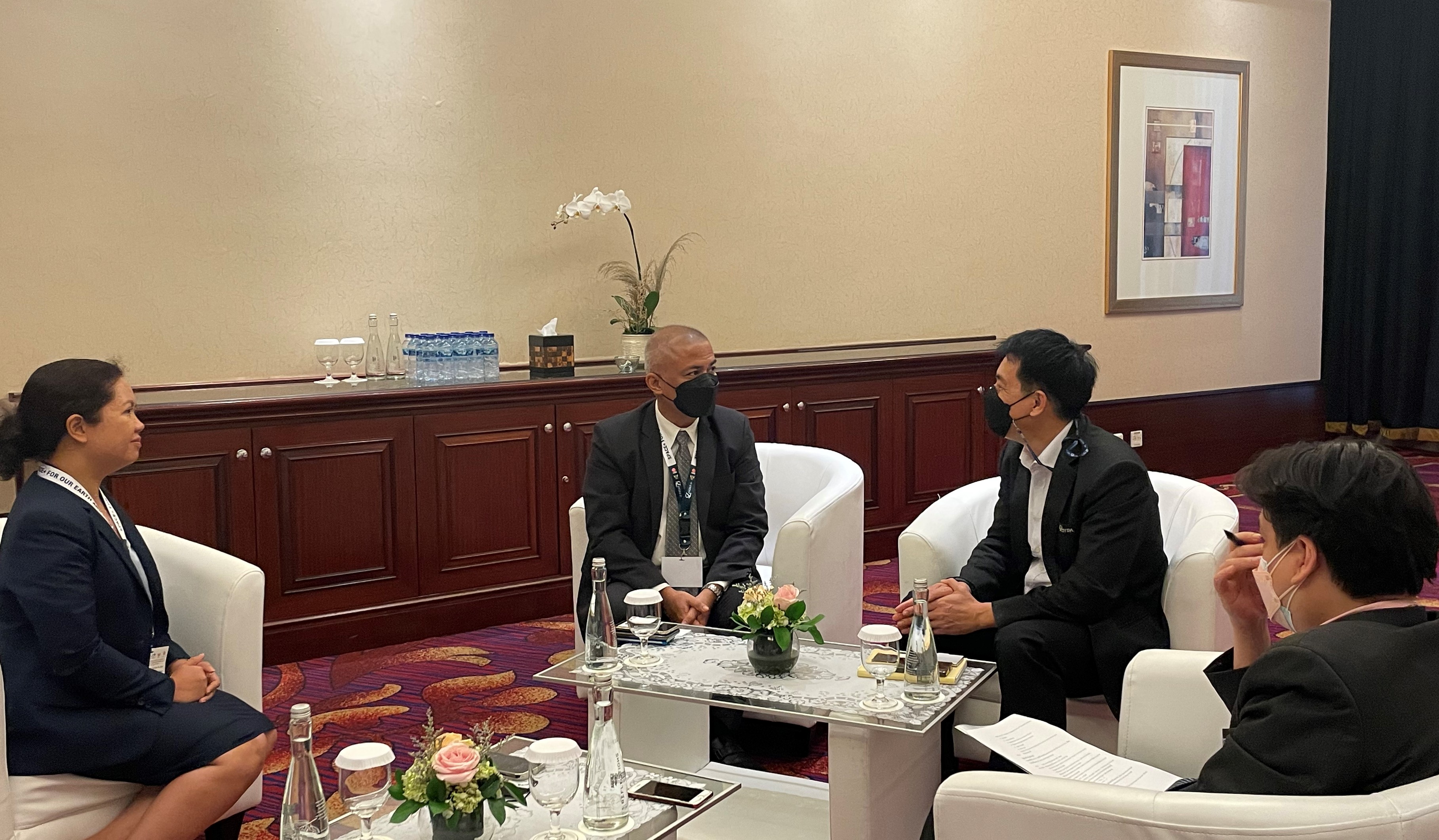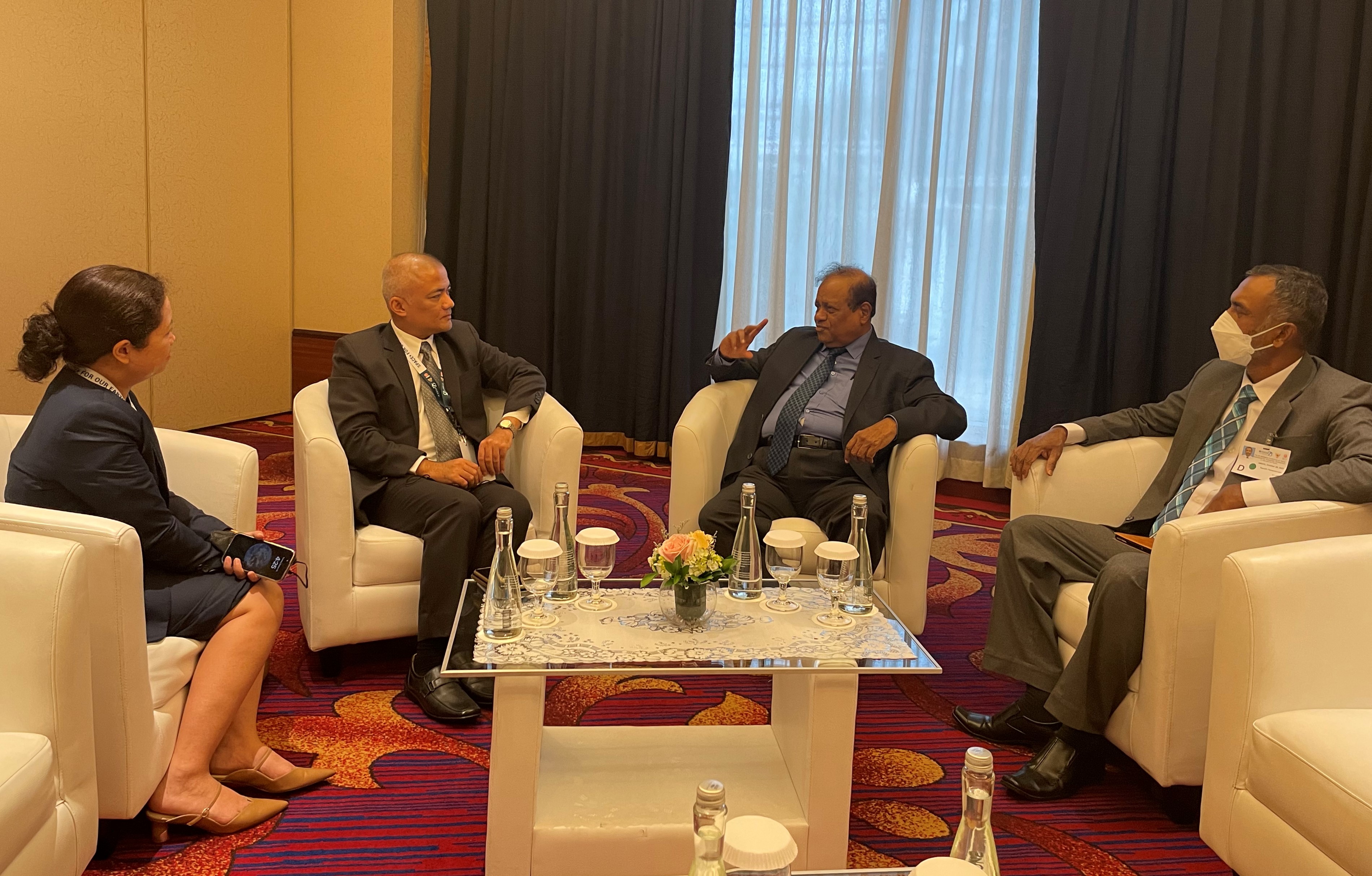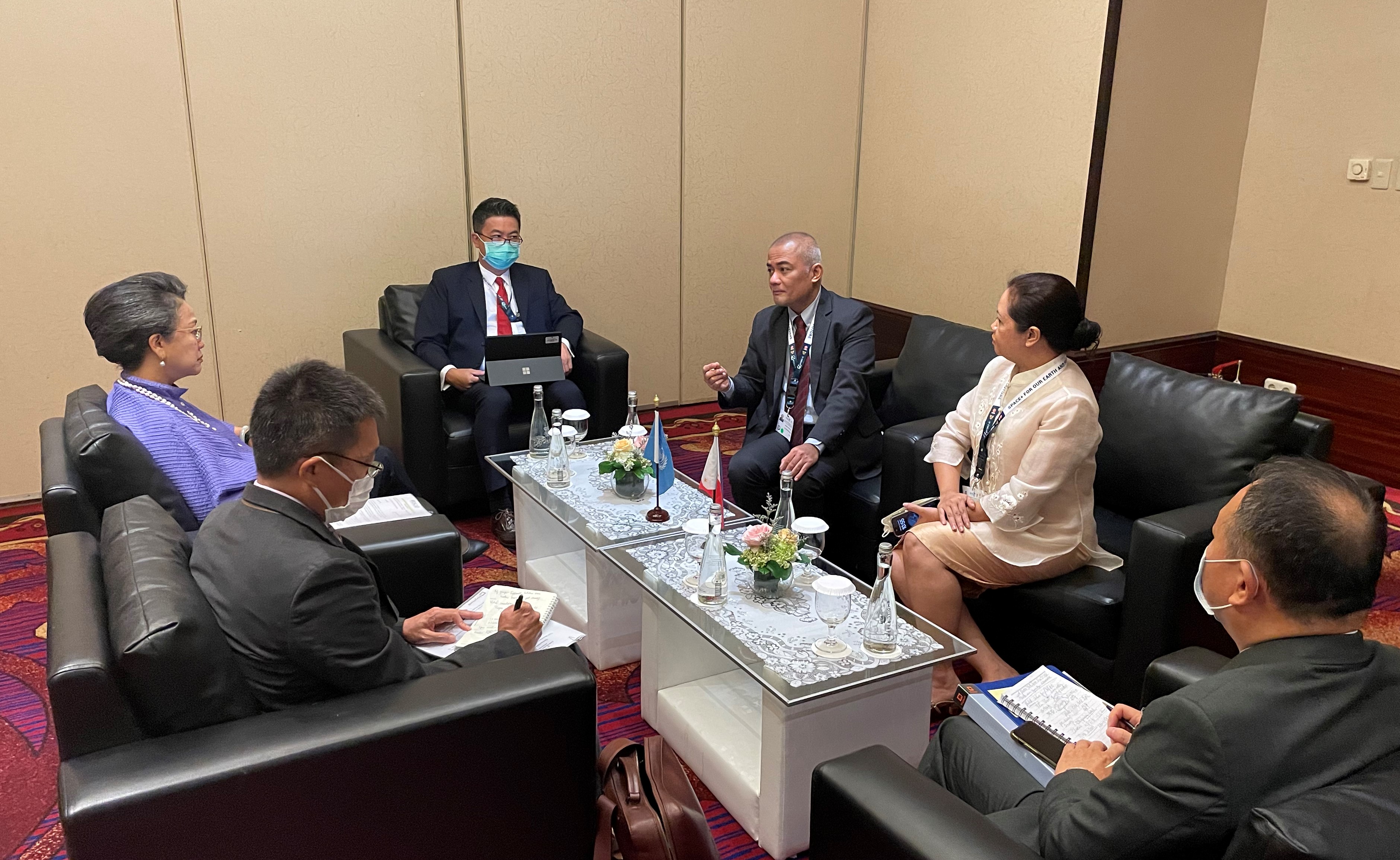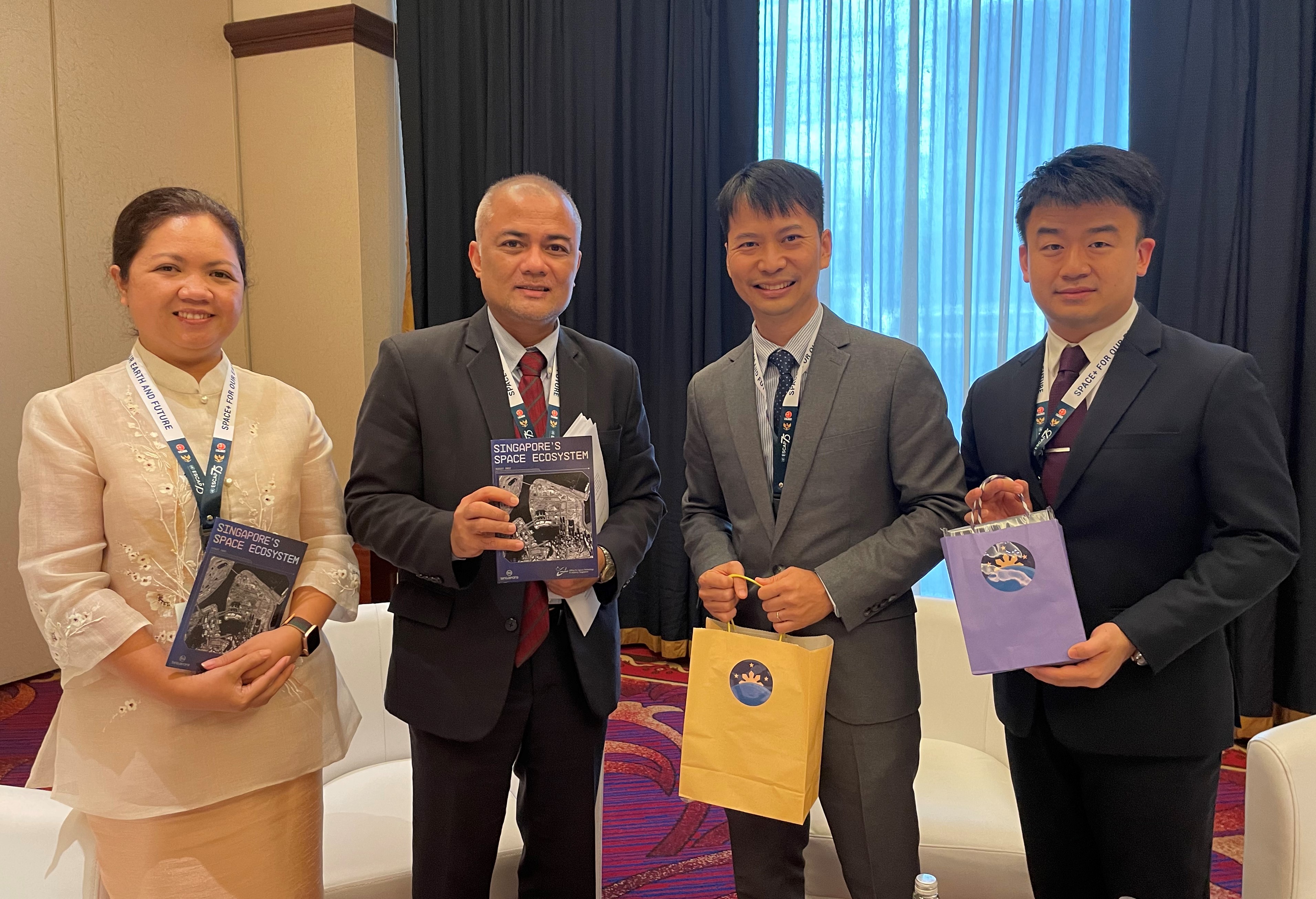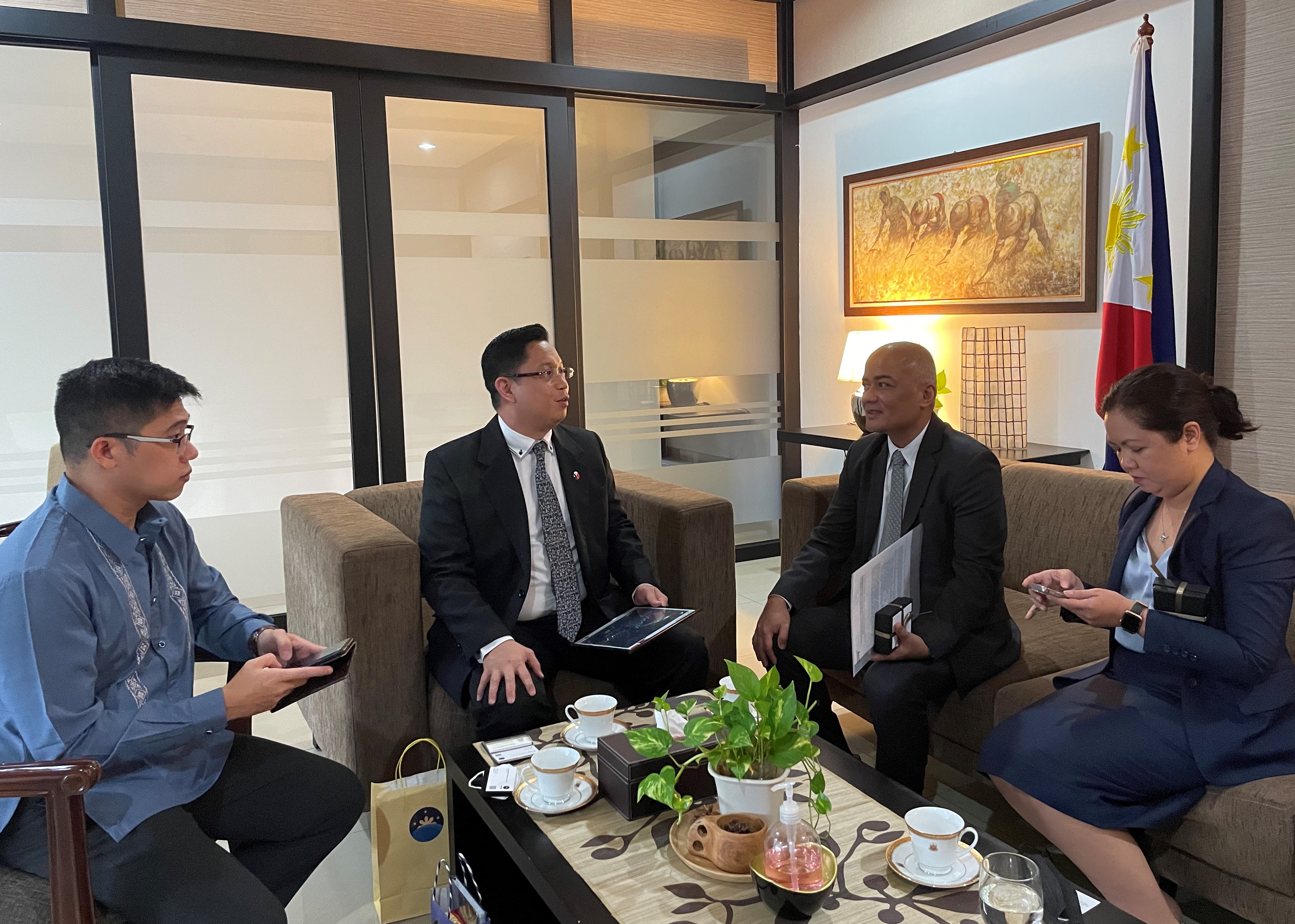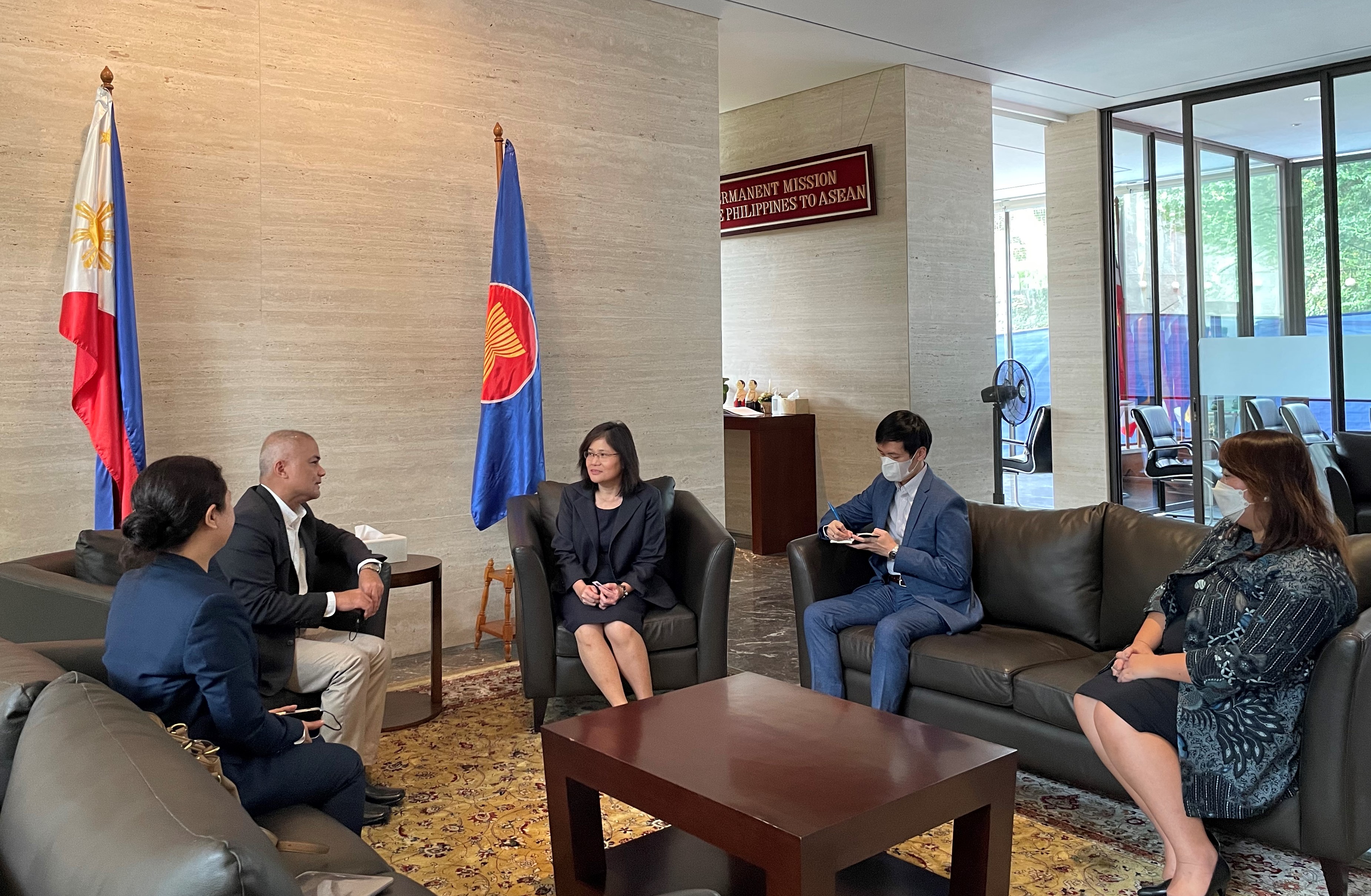Asia-Pacific countries adopted the Jakarta Ministerial Declaration on Space Applications for Sustainable Development in Asia and the Pacific with no objections during the Fourth Ministerial Conference on Space Applications for Sustainable Development in Asia and the Pacific (MC-4) held in Jakarta, Indonesia on 26 October 2022.
The United Nations Economic and Social Commission for Asia and the Pacific (ESCAP) and the Government of Indonesia co-organized the MC-4 under the theme “Space+ for Earth and future.” Delegates from the Philippine Space Agency (PhilSA) attended the conference to represent the Philippines, led by PhilSA Director General Dr. Joel Joseph S. Marciano, Jr. and Deputy Director General for Space Science and Technology Dr. Gay Jane P. Perez.
Pursuing Sustainable Development Goals (SDGs)
On 10 October 2018, the Third Ministerial Conference on Space Applications for Sustainable Development in Asia and the Pacific (MC-3) was held in Bangkok, Thailand. It was attended by leaders and representatives of the space community from over 30 countries in the Asia-Pacific region.
The MC-3 adopted two documents:
(1) the Ministerial Declaration on Space Applications for Sustainable Development in Asia and the Pacific, and
(2) the Asia Pacific Plan of Action on Space Applications for Sustainable Development (2018-2030). This is also referred to as the Plan of Action.
The Plan of Action has three phases. Phase I was set to be implemented in 2018-2022, phase II in 2022-2026, and phase III in 2026-2030.
On 24-25 October 2022, ESCAP held an Intergovernmental Consultative Committee (ICC) on Regional Space Applications Programme (RESAP) ad hoc session in the office of the National Research and Innovation Agency (BRIN) of Indonesia to prepare for the MC-4. Dr. Perez, as the National Focal Point for RESAP, co-chaired the session and delivered its major outcomes to the MC-4.
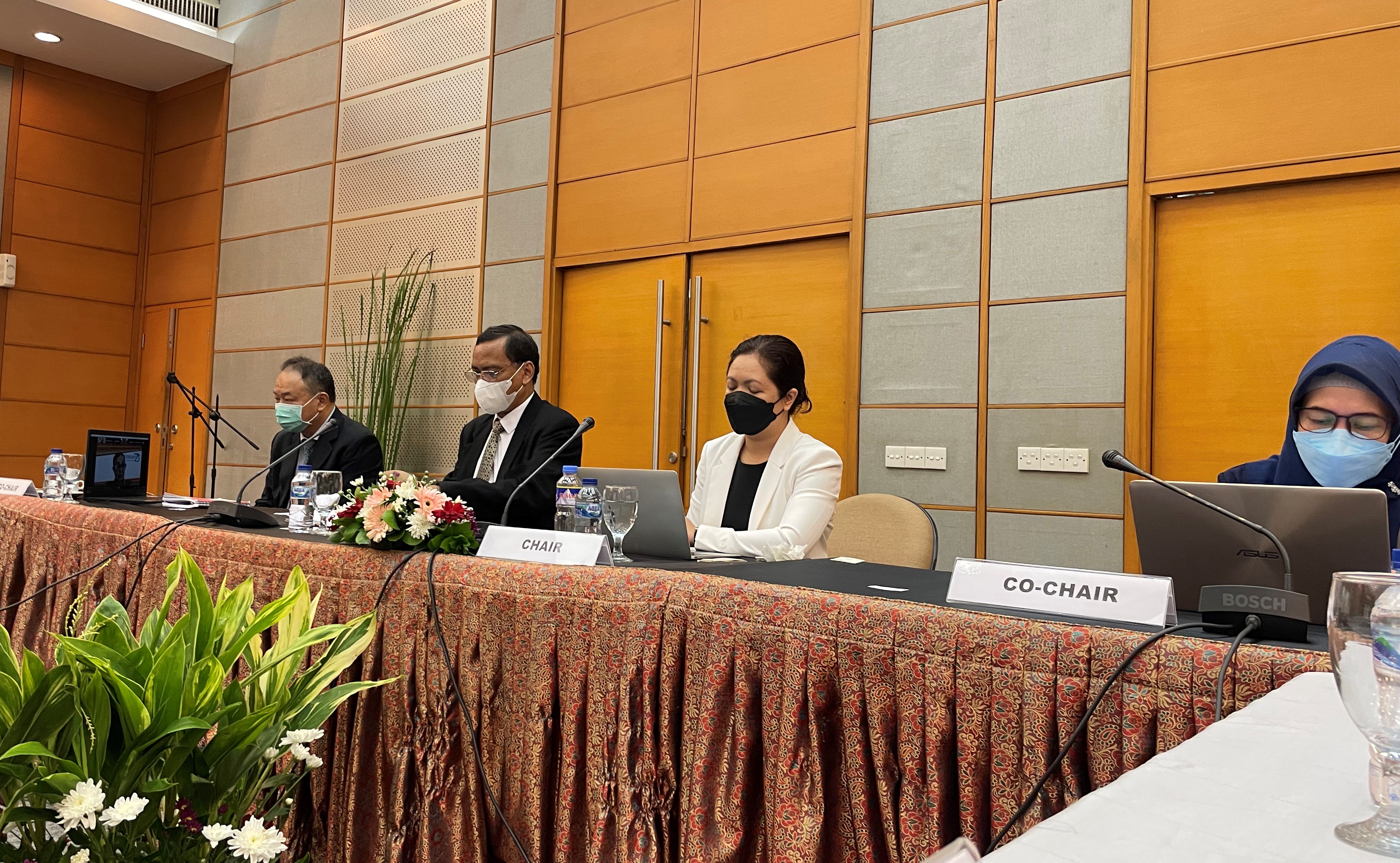
PhilSA Deputy Director General Gay Jane Perez presides over the Intergovernmental Consultative Committee as its Chair.
On 26 October 2022, the Fourth Ministerial Conference was held in hybrid format and Dr. Marciano was elected as one of the two Vice Chairs. Delegates from 27 member states, including the Philippines, attended the conference.
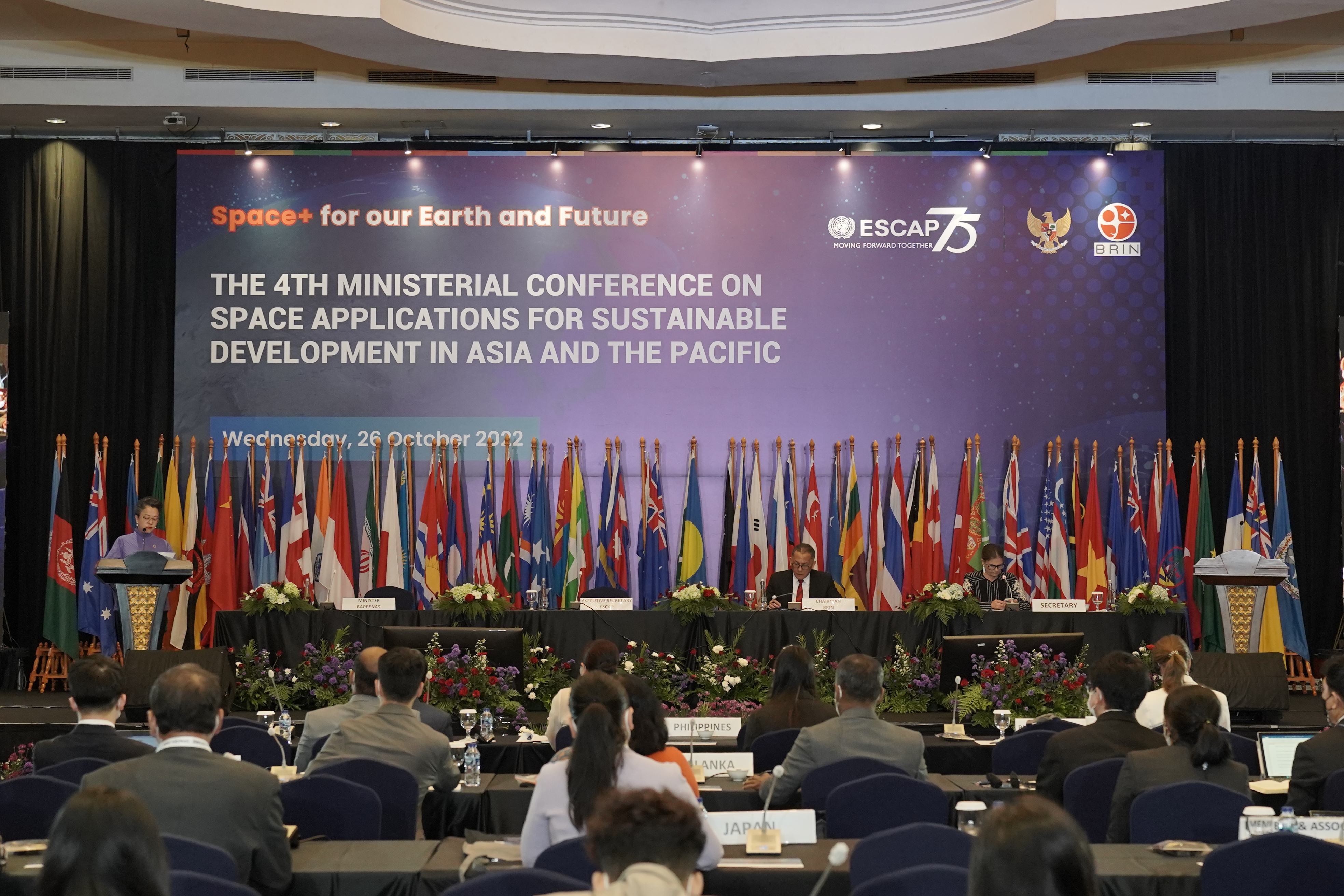
Representatives from UN ESCAP member states listen to ESCAP Executive Secretary Ms. Armida Alisjahbana’s remarks. Photo courtesy of UN ESCAP.
The Plan of Action provides a solid foundation for harnessing space science, technology and its applications (SSTA) to advance the 2030 Agenda for Sustainable Development. Its first phase promotes the adoption of space and geospatial information applications across six thematic areas: disaster risk management, natural resource management, connectivity, social development, energy, and climate change.
As of the MC-4, Ms. Tiziana Bonapache, Director of the Information Communications Technology and Disaster Risk Reduction Division of ESCAP, reported that member states have implemented over 600 activities, contributing to 156 actions out of the 188 actions identified in the Plan of Action. Following the Plan of Action, member states aim to make geospatial data more accessible, available, affordable, and actionable (4As), and for the data to be used for people, practices, processes, and policies (4Ps).
Recognizing space as a driver of sustainable development in the Philippines
With the Philippines hit by an average of 20 typhoons a year, disaster risk management, reduction, and resilience are a primary concern of the country. Furthermore, the recent COVID-19 pandemic has also brought forth the increasing need for accessible connectivity.
“As we journey through the new space age, we recognize that space science, technology and its applications (SSTA) have an increasingly indispensable role in the attainment of the Sustainable Development Goals (SDGs), especially in the midst of various challenges we face, such as climate change adaptation, disaster risk reduction, and the recovery efforts from the Covid-19 pandemic,” said Dr. Marciano during his delivery of the Philippine National Statement on Agenda Item 2, “Scaling up space applications to advance sustainable development in Asia and the Pacific under the theme Space+ for our Earth and Future.”
PhilSA lends its support to initiatives anchored in the Space+ theme, recognizing that effective cascading of know-how and building capacities of the member states, involvement of the youth, and forging partnerships in the Asia-Pacific will contribute to the acceleration of the second phase of the Plan of Action.
In regards to this, Dr. Marciano shared the capacity-building efforts being done by PhilSA that enhance regional cooperation in the Asia-Pacific such as the Space Infrastructure, Know-How, and Applications Acceleration through Promotion and Training (SIKAP+) project and the “Data applications of Pandora spectrometer instrument and Geostationary Environment Monitoring Spectrometer (GEMS) on air pollution monitoring and management” training program.
During PhilSA’s stay in Jakarta, the delegation also met with various agencies in the region to introduce PhilSA and identify potential areas of collaboration in regards to space R&D and policy.
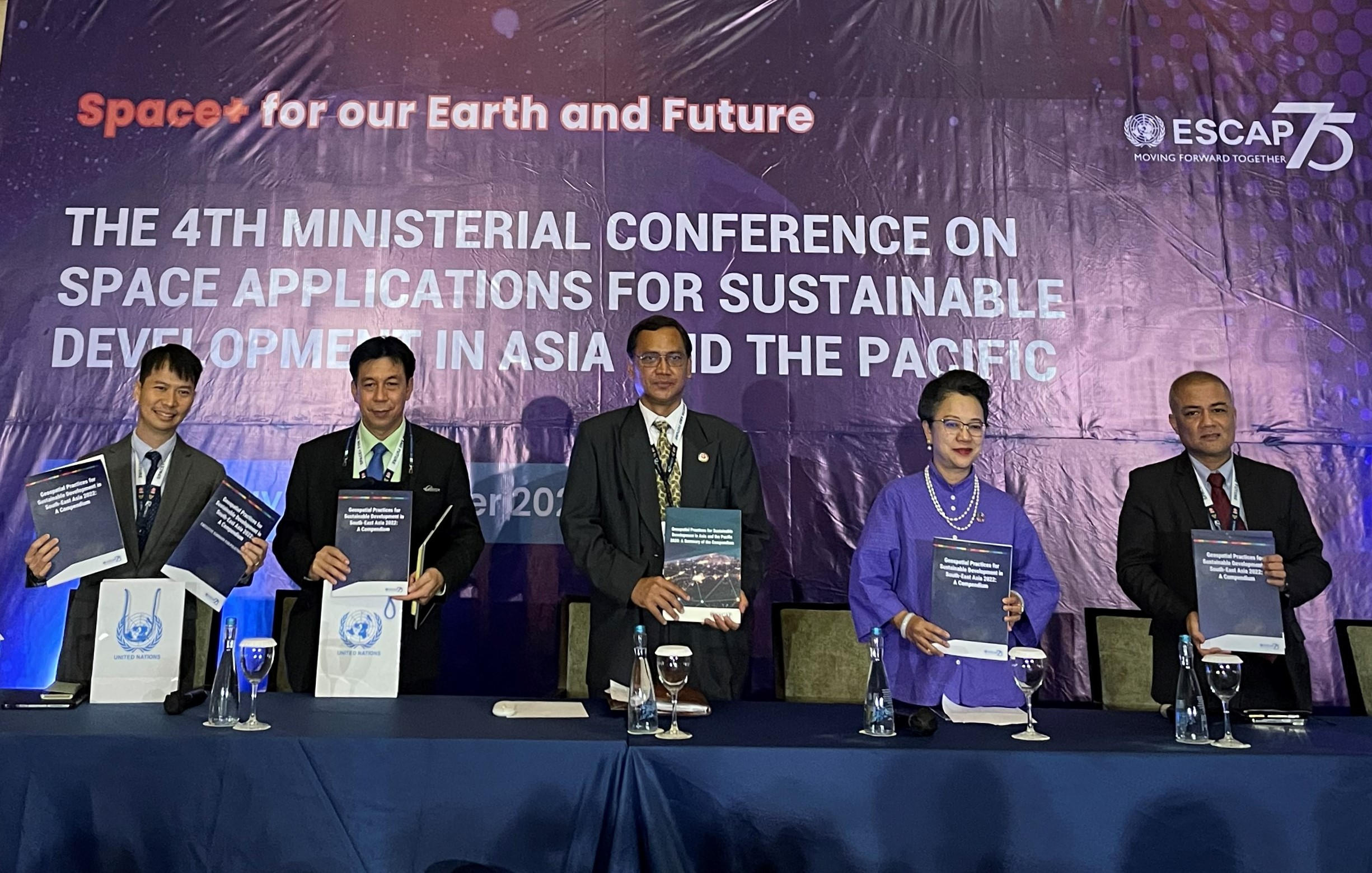
[L-R] Deputy Executive Director Designate of the Singapore Economic Development Board, GISTDA Deputy Executive Director Mr. Tatiya Chuentragun, BRIN Deputy Chairman for Policy and Development Mr Mego Pinandito, ESCAP Executive Secretary Ms. Armida Alisjahbana, and PhilSA Director General Dr. Joel Joseph Marciano Jr. hold up their copy of the Compendium of the Geospatial Practices for Sustainable Development in South-East Asia 2022
“We hope that through this Compendium, within and beyond these pages, we can further strengthen regional cooperation and collaboration on space applications for sustainable development,” Dr. Marciano said.
Renewing the commitment to regional cooperation
New frontiers are reached by space technology every year, giving us new opportunities for improving our communities. As member states proceed to the second phase of the Plan of Action, the best practices and lessons learned from phase I are carried forward.
Through the adoption of the Jakarta Ministerial Declaration, the spirit of commitment is renewed not only for cooperation in creating and utilizing sustainable technologies but also in finding new ways to leverage innovative digital technologies, engage the youth and other end users from multiple sectors, and more effectively manage information through unique products and services such as a regional cloud platform. By achieving these, user communities will be empowered on local, regional, and global scales.
Regional cooperation plays a critical role in the effective implementation of the Plan of Action. PhilSA intends to cascade the opportunities and activities from regional cooperation to its stakeholders, so that everyone can take part in the global work of advancing SSTA knowledge and contribute solutions that will address longstanding and future challenges.
The next ministerial conference is expected to be held in the second half of 2026.
View the recording of the MC-4: https://www.youtube.com/watch?v=J_1Bp8eCjHY




